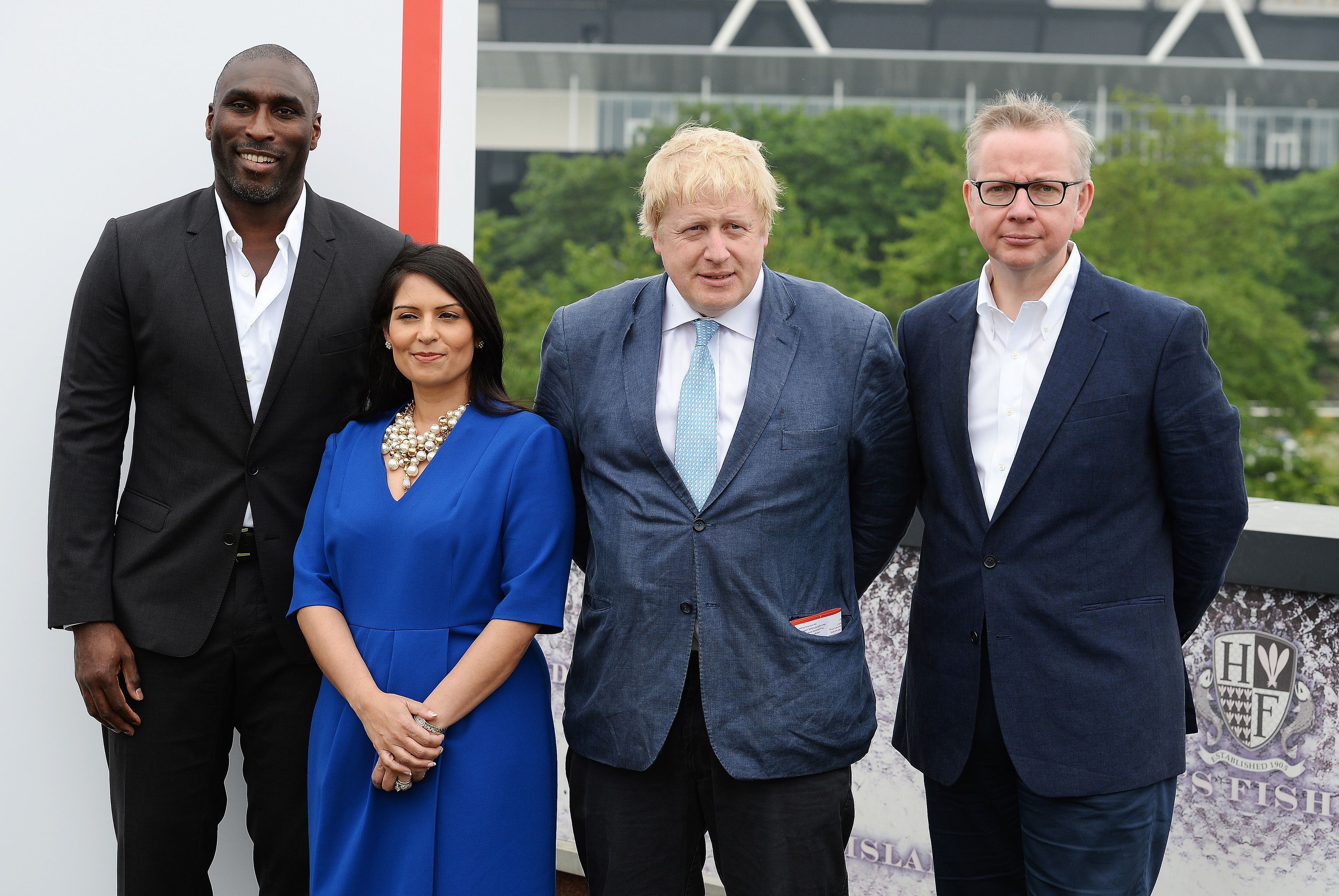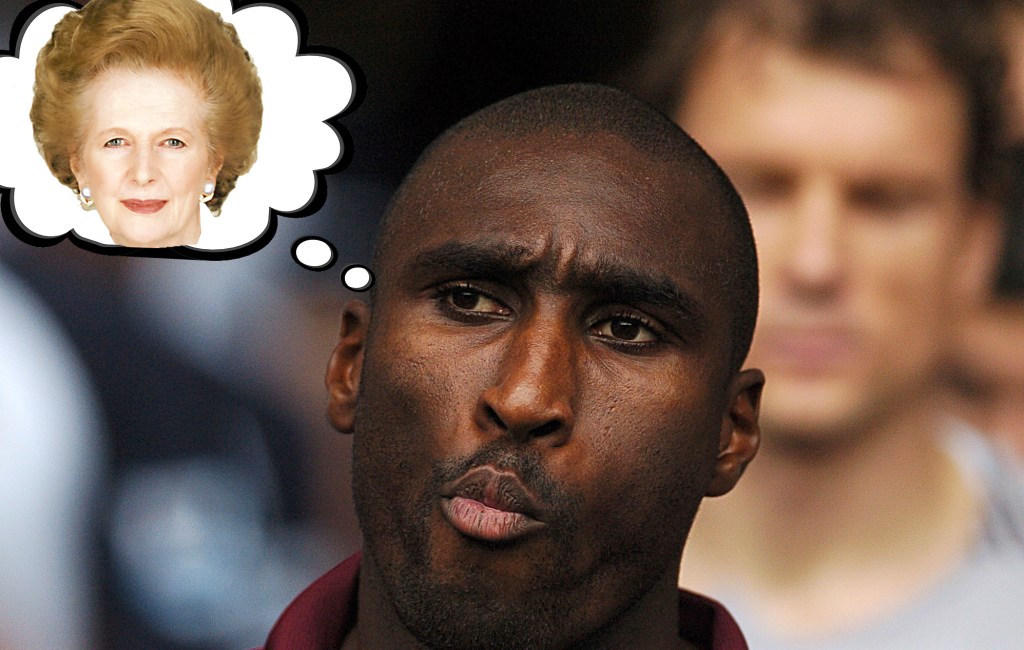Were we forced to pick a highlight of the general election so far, it would surely have to be one of Neville Southall’s outbursts of socialist feeling on social media. The Llandudno native and former Everton goalkeeper has spent the past few weeks relentlessly attacking the Conservatives, urging Welsh voters to reject Theresa May and making the incendiary claim that she “wants fox hunting back but will use working-class people instead of foxes”, which is surely the definition of ‘huge if true’. When not blowing open Conservative conspiracies to literally feed our last few miners, dockers and steelworkers to their hounds, Southall has spent the run up to June’s general election praising Jeremy Corbyn and his left-wing policies. It seems fairly obvious that Big Nev is planning to vote Labour, which as someone with close personal links to both Wales and Liverpool is hardly a break from the electoral norm.
It is far from cut and dried which way footballers vote at elections, of course, but there are very few with political opinions as strident as Southall’s. Though many avoid talking politics – hardly a surprise in an era of luxurious detachment, salaried Twitter moderators and relentless media training in the top flight especially – that is not to say they are entirely apathetic to goings on in Westminster and Whitehall. While nobody has, to our knowledge, conducted detailed polling of professional footballers, some of them have given us clues to their voting intentions and the prevailing mood in their various dressing rooms. So there are several footballers we can put in either the red camp or the blue camp with relative certainty, this along with the few like Southall who always seem to be one tweet away from going too far and calling for someone to be guillotined.
Videos by VICE
Perhaps the closest anyone has come to actually polling professional players is Hunter Davies, author of the 1972 book The Glory Game. He asked the Tottenham side of the time where their political allegiances lay, with nine of the 12 who were willing to answer siding with Ted Heath’s Tories, and the other three going with Harold Wilson’s men. Spurs stalwart Steve Perryman, one of those three, was meant to have asked incredulously: “Aren’t all the players Labour?” It should be said that this was hardly a representative sample size of footballers in general, while the answers at a London club in the top tier like Tottenham may have differed wildly from those at Barnsley, Sunderland or Swansea City.
READ MORE: Clough, Shankly, Busby, Ferguson – The Golden Age of the Socialist Manager
Now, with professional players earning enormous wages and experiencing prosperity like never before, one might expect them to do what the rich tend to do and proudly pin on blue rosettes en masse. Though their voting patterns may well reflect their economic status, those modern footballers who do vote Conservative might generally be termed ‘shy Tories’, no doubt because they have seen the treatment handed out to the likes of Karl Henry and Jonathan Walters for their decidedly blue views.
Henry famously had it out with one-time SNP supporter Stan Collymore ahead of the 2015 general election after coming out in favour of the Tories, managing to make Collymore look comparatively sensible by resorting to the same arguments used by the relative we should all long ago have unfriended Facebook. “Why don’t you donate your salary to those in need? I’m sure you don’t need it,” Henry told Collymore, accidentally championing a radically communistic 100% income tax in the process. He also asserted that “too many feel that they’re entitled to other people’s wealth… be smart, work hard, make your own money.” It was widely noted that he had not worked hard enough to stop QPR from being relegated that season, nor Wolves several seasons previous, regardless of the total worthlessness of his advice to someone sustaining themselves via miserly welfare as opposed to tens of thousands of pounds a week.
Jon Walters, meanwhile, had the temerity to tweet that Britain had “seen sense” after re-electing David Cameron, an opinion which naturally earned him a savaging on Twitter. Of course, had Twitter been representative of the British electorate in 2015, we would be bumbling happily through an Ed Miliband government right now, our complaints limited to his intense social awkwardness as opposed to endemic inequality, division, uncertainty and the devastation of public services and the NHS. Especial vitriol was reserved for Walters on account of his being brought up on Merseyside, where being a Tory is a bit like being a witch in medieval times. Walters has likely been living in fear of running into Neville Southall ever since, lest he find himself getting the political version of the Michael Owen treatment.

Sol hanging out with prominent Leave campaigners because: of course // PA Images
Perhaps the most ‘out there’ Conservative footballer is Sol Campbell, a man who has previously been touted as a potential candidate for London Mayor and once intimated he might run for the Tories in their safe seat of Kensington. Though more considered in his views than Karl Henry, Campbell’s vision for Conservatism can be a touch contradictory at times. In a 2015 interview with The Guardian in which his interviewer pressed him on Ed Miliband’s proposed mansion tax, Campbell said: “I’ve paid all my taxes up to here. I’ve been prudent. Why should you retrospectively say: ‘You guys have done well, I want a piece of that.’ Why? Why?” He then went on to state that one of his biggest political bugbears was inequality, which chimed somewhat discordantly with his rant about progressive taxation being applied to his multi-million-pound property portfolio.
Campbell is not only about low taxes and big ol’ houses, he also likes to go shooting in the countryside. Speaking to the Shooting Gazette in 2015, he gave them possibly the most Tory quote of all time with the immortal words: “This year I shot about 30 birds… the banter was just lovely.” This, we like to think, is Campbell’s ideal vision of Conservatism, blood and feathers raining from the skies while booming laughter echoes across a country estate somewhere, far from the grasping hands of the taxman. That’s how Neville Southall might envision it at least, except with working-class people instead of pigeons.
Though Frank Lampard has also admitted to being a Conservative, and was also once rumoured to be in the running to become Kensington’s local MP, nobody can match Campbell’s love of shooting, tweed and banter in the ‘being a massive Tory’ stakes. As for the footballer most committed to the Labour Party, that is somewhat harder to pin down. While some of this country’s greatest ever managers have identified as socialists and Labour voters – this including Alex Ferguson, who Tory admirer and former goalkeeper Mark Bosnich once accused of wanting “all communists in his team” – left-wing players tend to fly under the radar. That is especially true in the corporate and heavily marketised world of the Premier League, where the salaries and bonuses available would make a champagne socialist of even the most conscientious man.
READ MORE: How Football Explains Capitalism
That said, there are still many players from both Britain and abroad who come from working-class backgrounds, some of whom no doubt reject the right-wing mindset of preserving their wealth at all costs. Joey Barton, Jamie Carragher and Gary ‘Red Nev’ Neville are some of the Premier League-era footballers who seem to lean leftwards, and just as it was when Hunter Davies polled Tottenham it would make sense for there to be more left wingers further down the leagues, where the money on offer is less difficult to square with the principles of egalitarianism. One might point to David Wheeler, a winger with Exeter City who writes a regular column for Devon Live in which he has espoused a left-of-centre position, though he seems more inclined towards the Green Party than Labour. In search of Labour footballers in the top flight, however, one has to go back to a time before ubiquitous television eroded the class divisions of the game.
During his younger years at Tottenham Hotspur in the late seventies and early eighties, Chris Hughton wrote regularly about football for Newsline, the Workers Revolutionary Party’s newspaper. Speaking to The Guardian in 2009, he said: “I was a very young man and it was a football column. I wasn’t really politically involved with them. Did I try to get Spurs to play in red? Something like that.” He has recently reaffirmed that he is a Labour member, and seems like more of a traditional socialist than someone in the radical Marxist tendency. He was also an active anti-apartheid campaigner in the eighties, which we can assume means he was no fan of Margaret Thatcher’s government and their opposition to sanctions against the apartheid regime.
Speaking of people who dislike Thatcher, Sam Allardyce is another Labour man who played football through the seventies and eighties. According to Sky Sports journalist Kaveh Solhekol, the former England manager is “a big Labour Party supporter”, and Big Sam nailed his colours to the mast in an interview with The Sun in 2011. “Since Margaret Thatcher stopped teachers being paid extra money for coaching sports after school, all sporting activities have diminished on a competitive basis,” he told Britain’s least likeable newspaper. “Kids are now more obese and unfit than ever… Thatcher killed football, there is no doubt about it.” Holding a similarly dim opinion of Thatcher was Mick McCarthy who, as the son of a miner from Barnsley, refused to shake her hand ahead of the 1988 Scottish Cup Final when he was in defence for Celtic. By a small deductive leap, we can assume he’s not the Conservative sort.
Like much of the electorate before a general election, there are also plenty of footballers who are either confused or conflicted about politics. Perhaps the most timeless example of this is Kevin Keegan, a man who was wooed by both the Conservatives and Labour in turn. Despite posing cheerily with Margaret Thatcher in 1980 and – Christ save him – kissing her actual face while doing so, he also had a kickabout with Tony Blair at the 1995 Labour Party conference, making the soon-to-be prime minister seem almost normal and helping to boost Labour’s image ahead of their 1997 landslide. Without getting too much into the ideological crossover between Thatcher and Blair, King Kev clearly wasn’t the most partisan of footballers, and could even be seen as a crucial swing voter within the game, in a symbolic sense at least.




